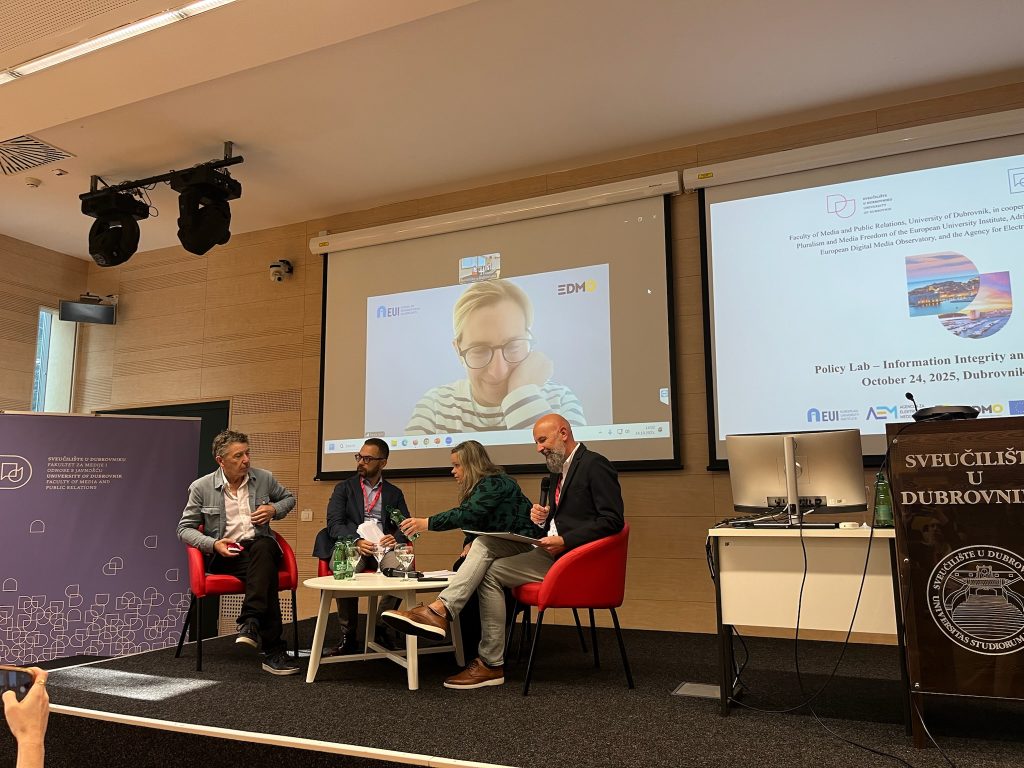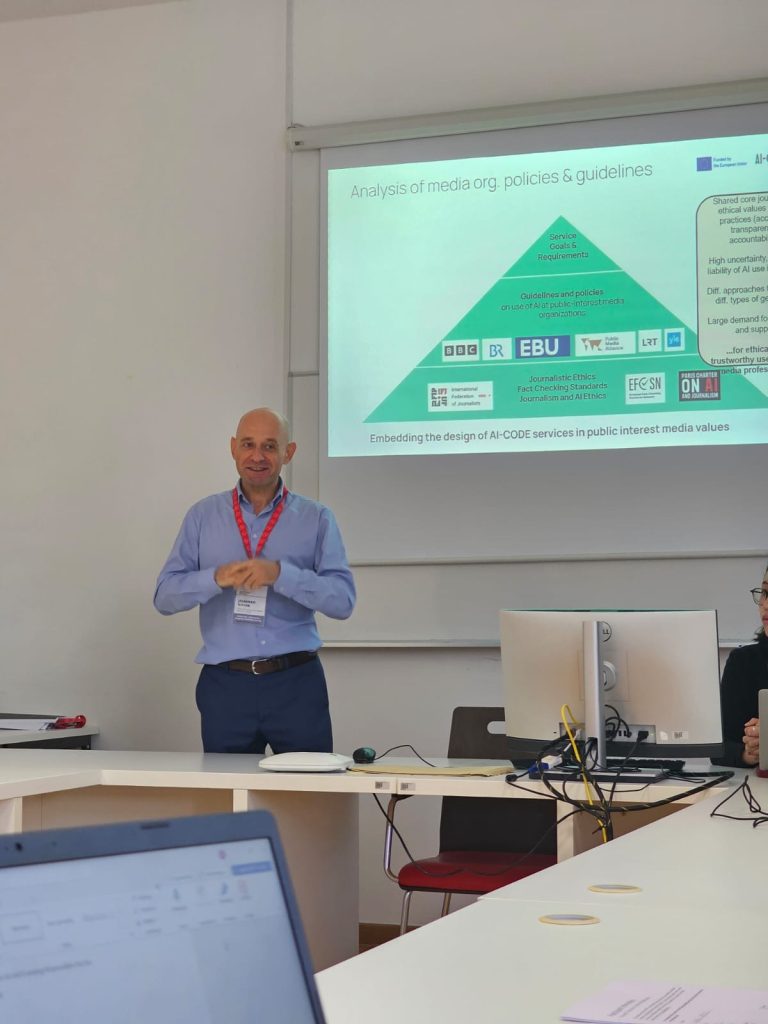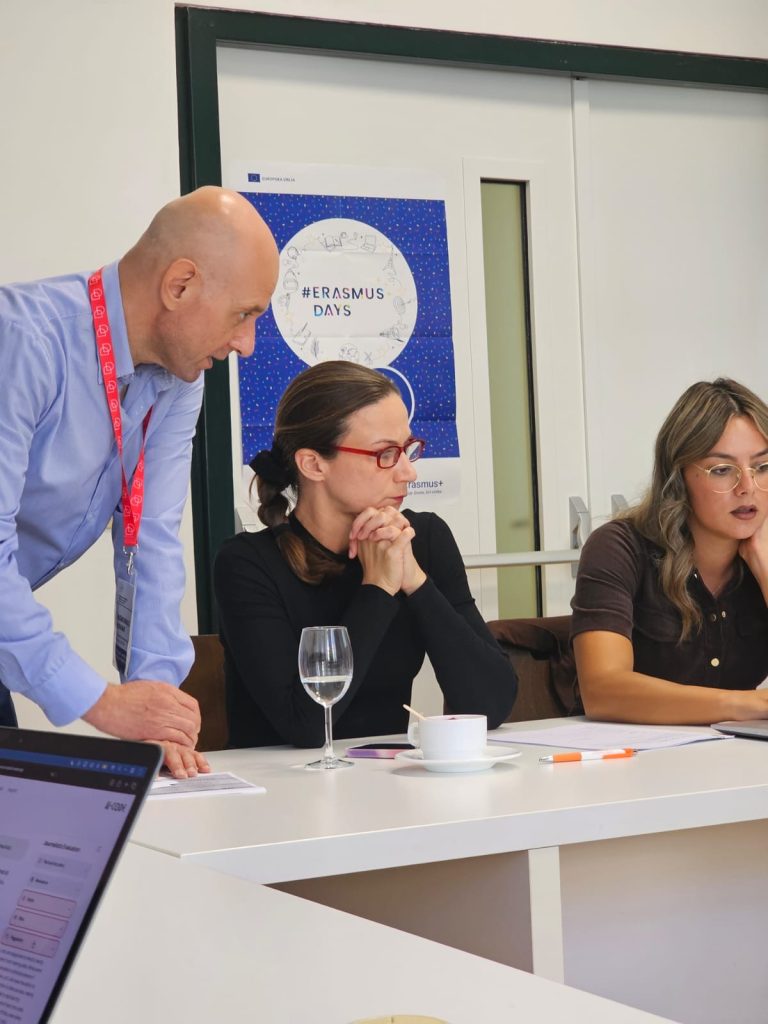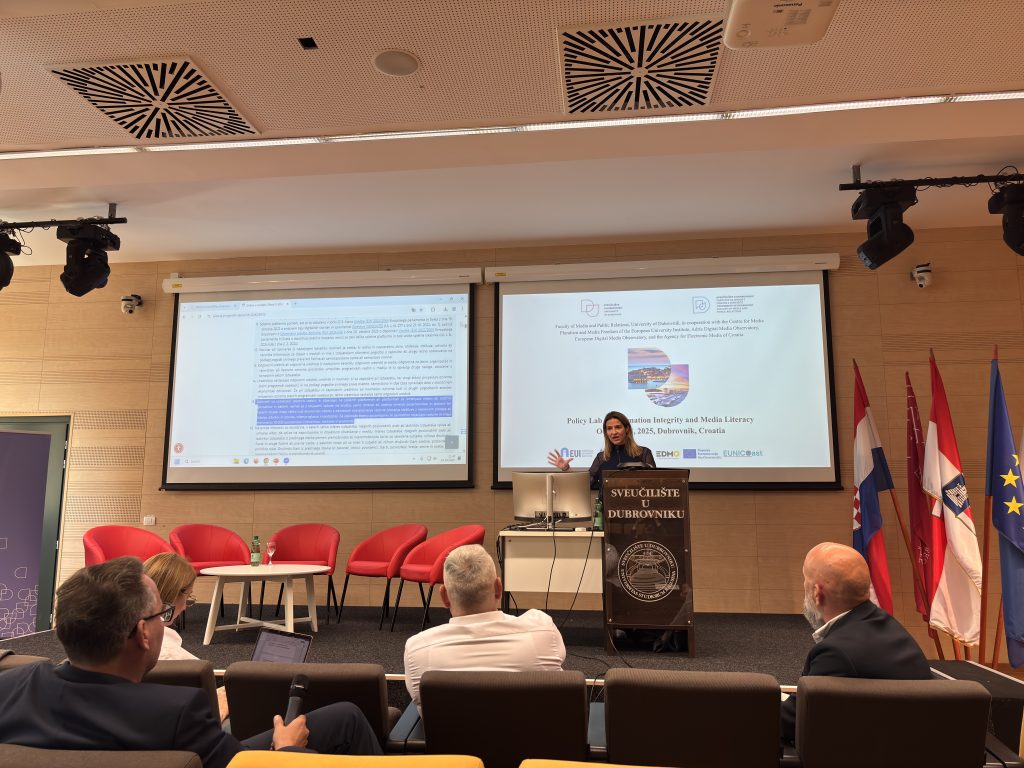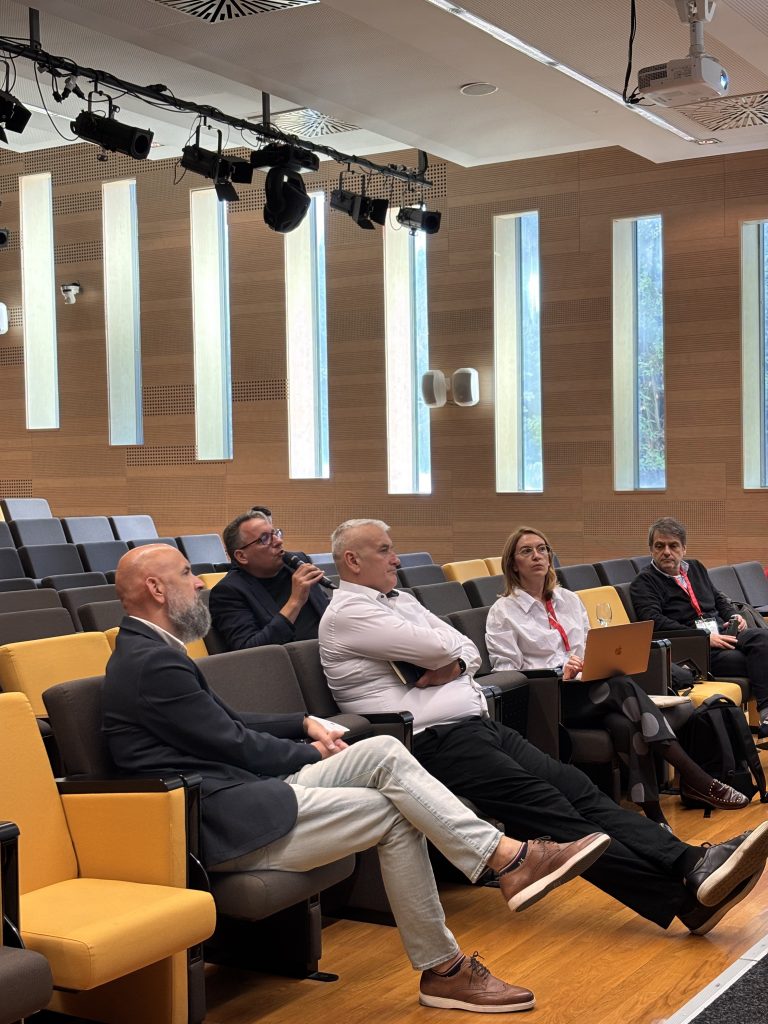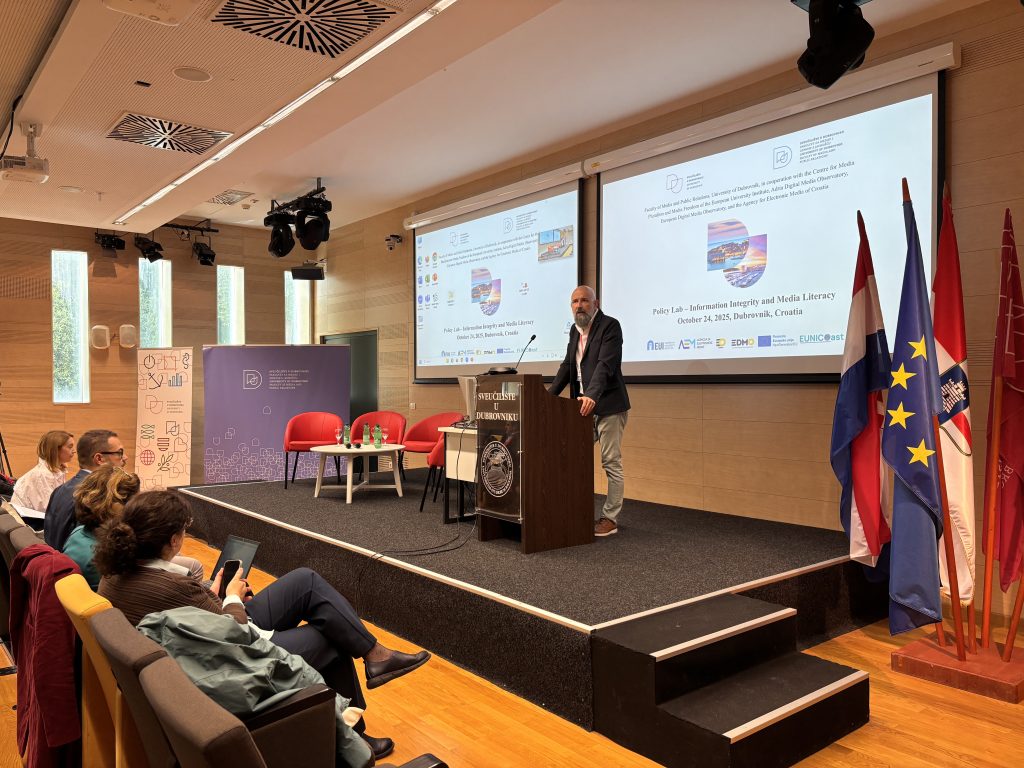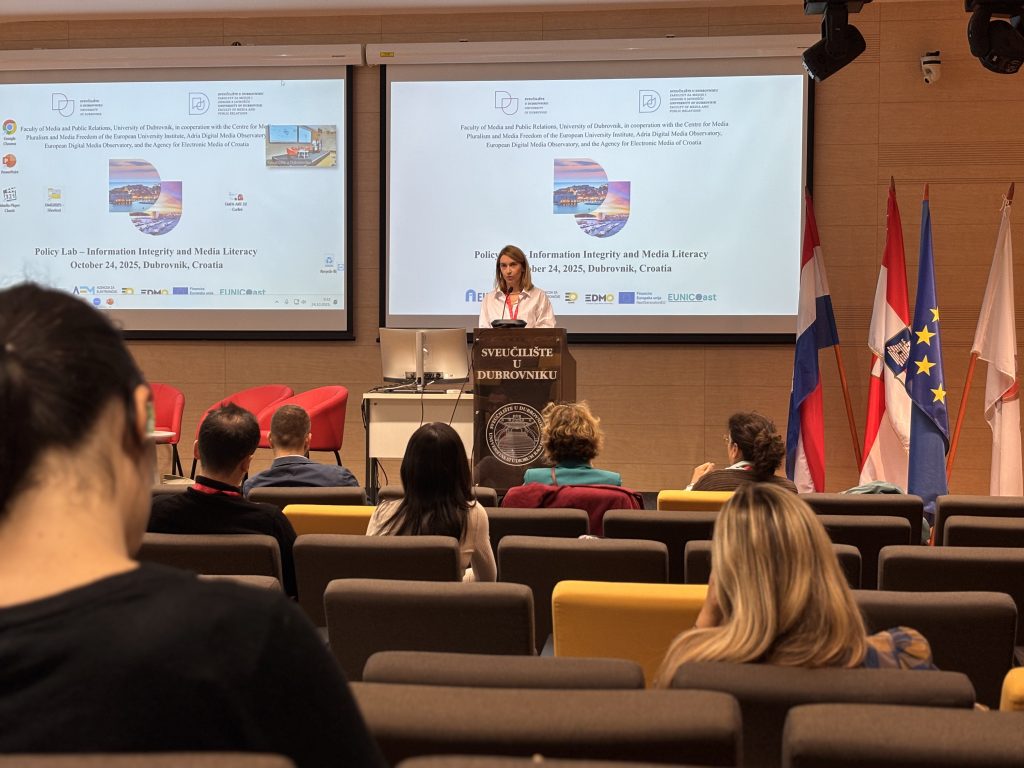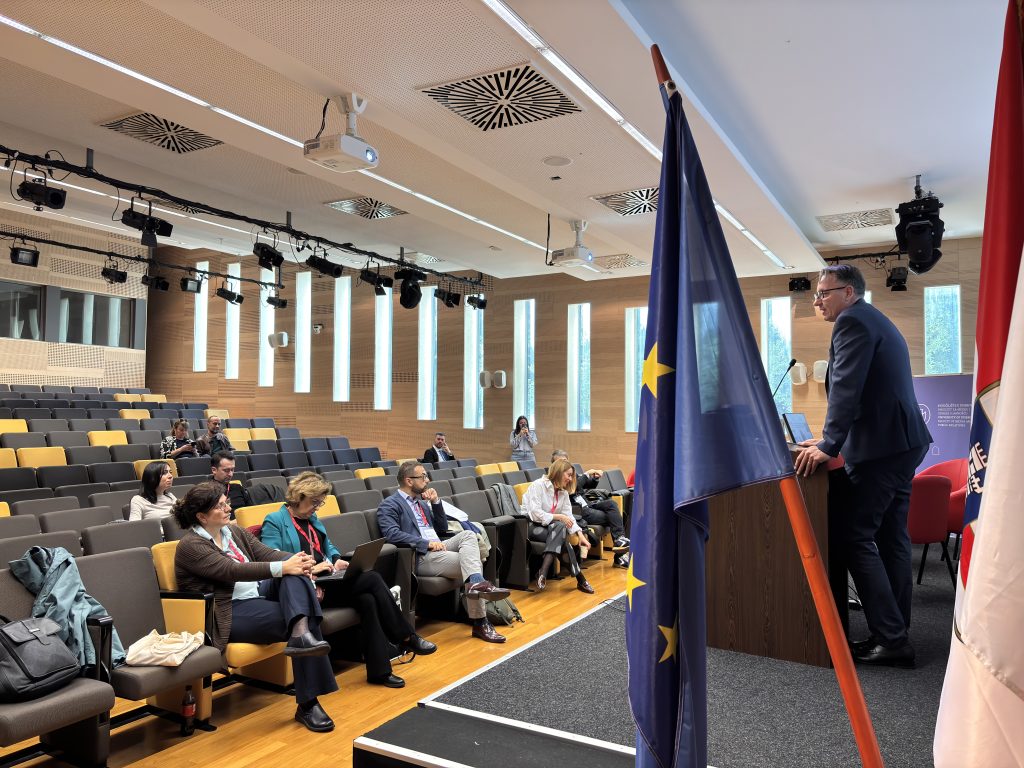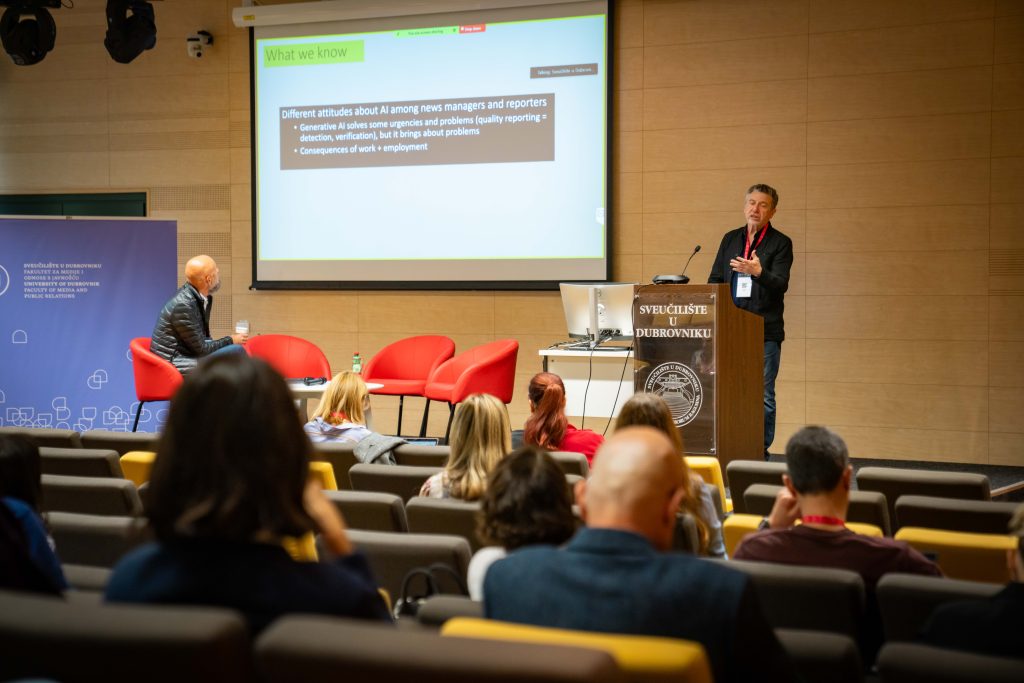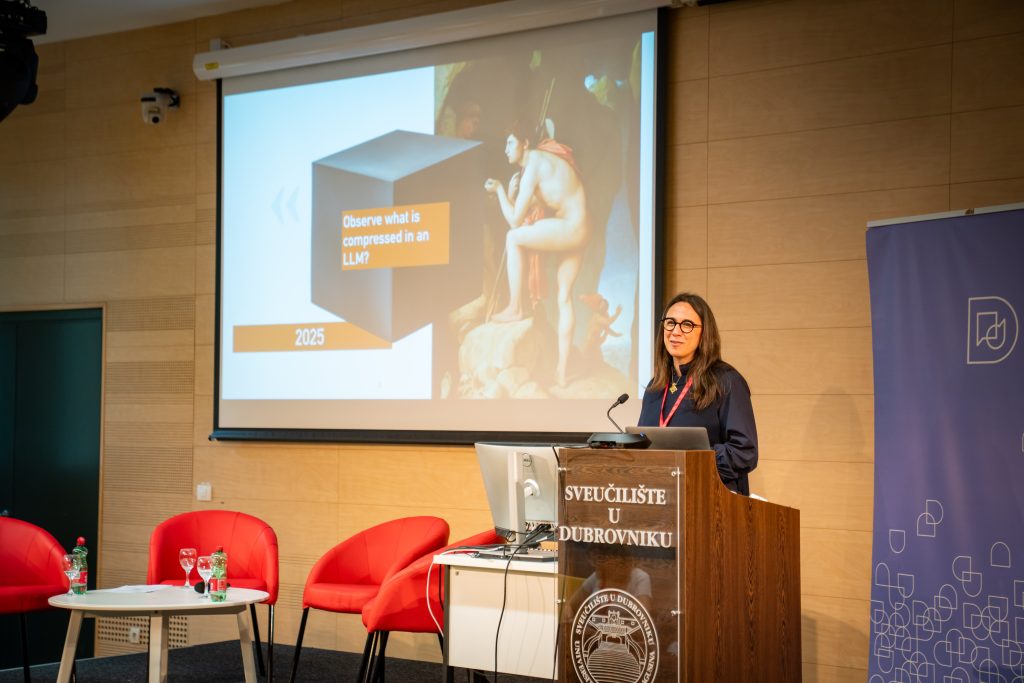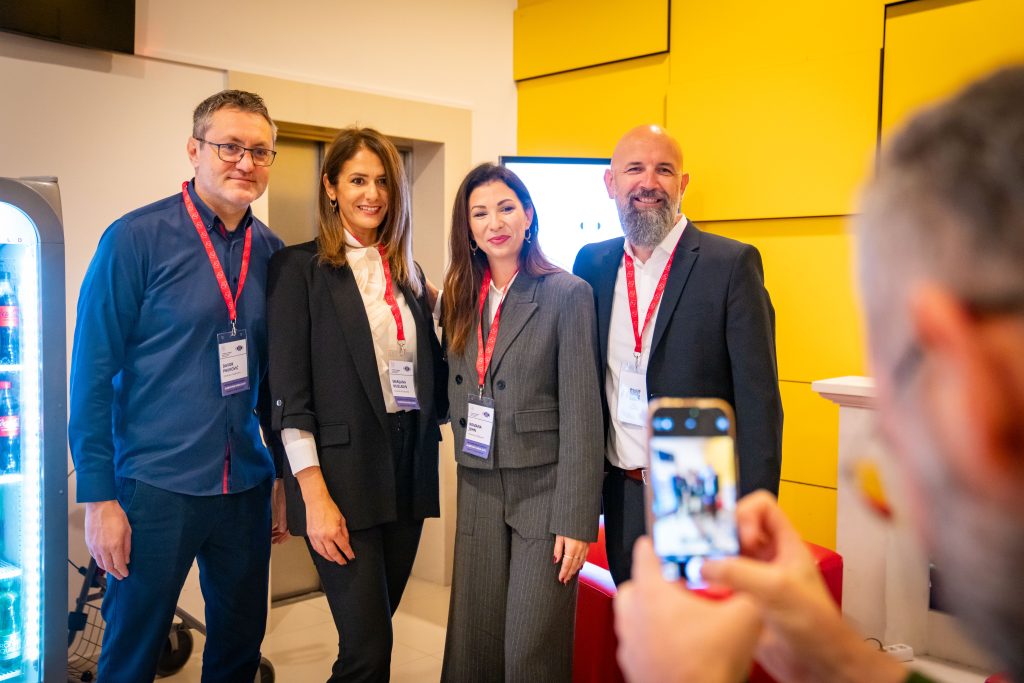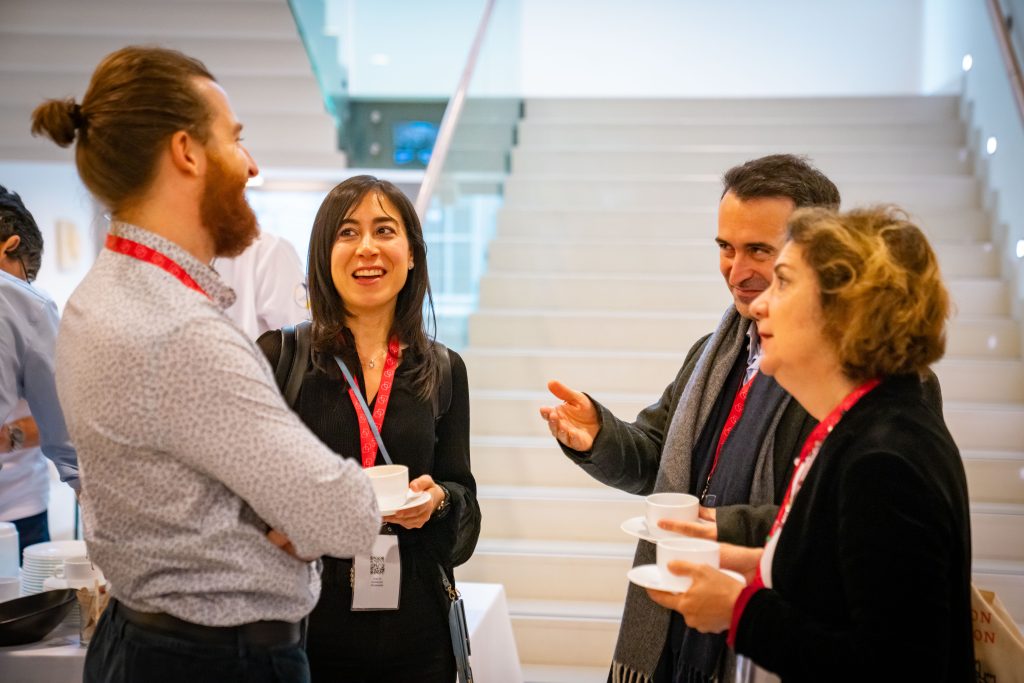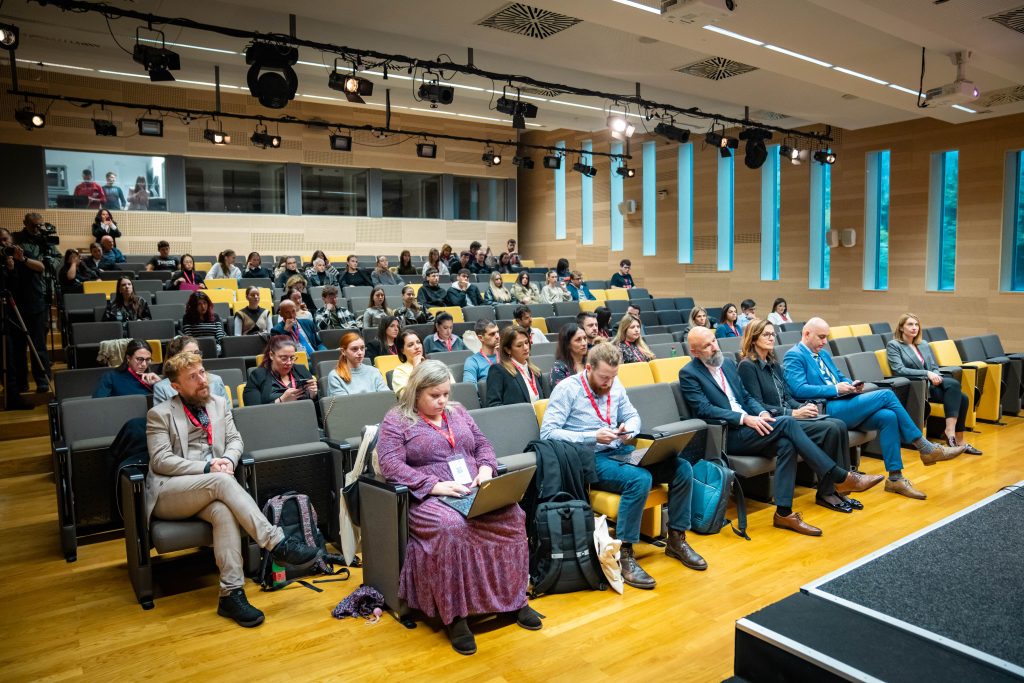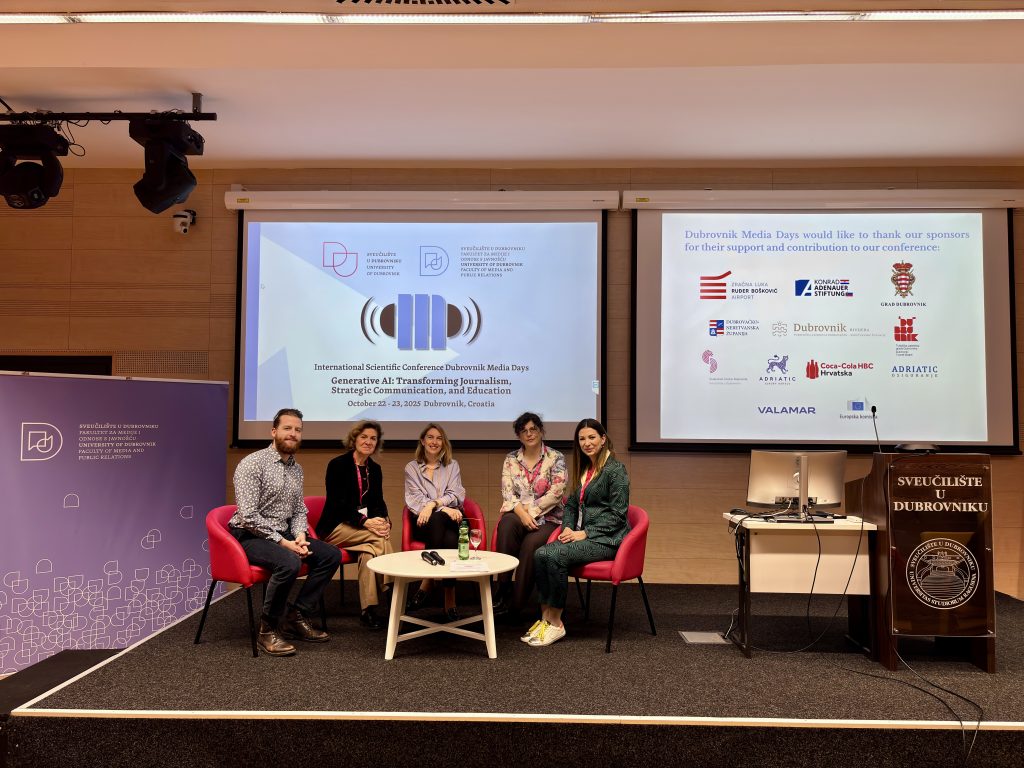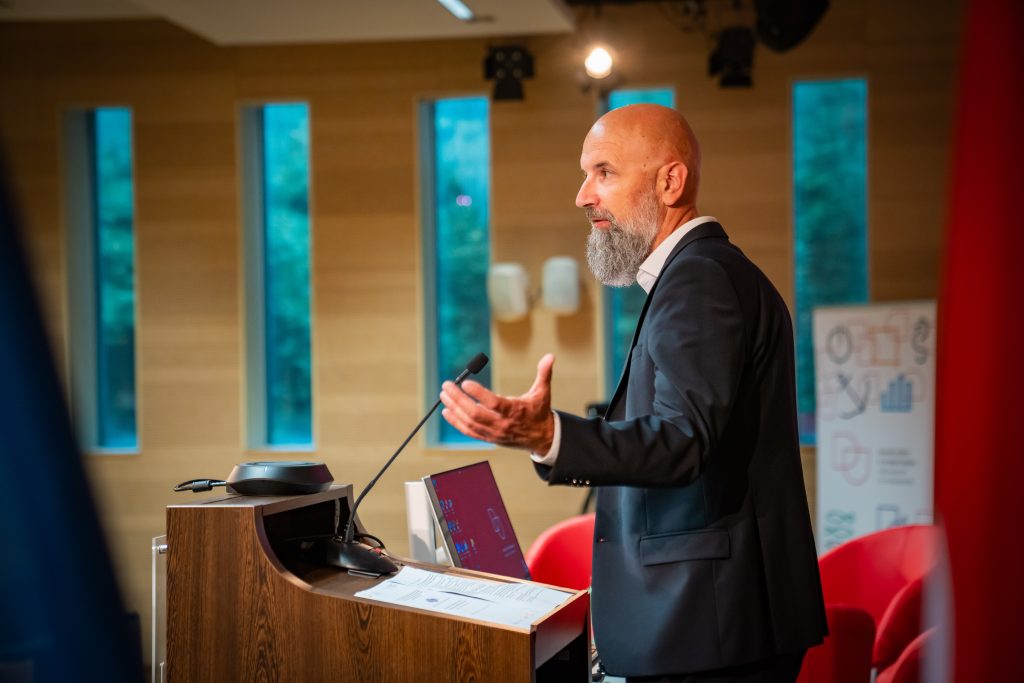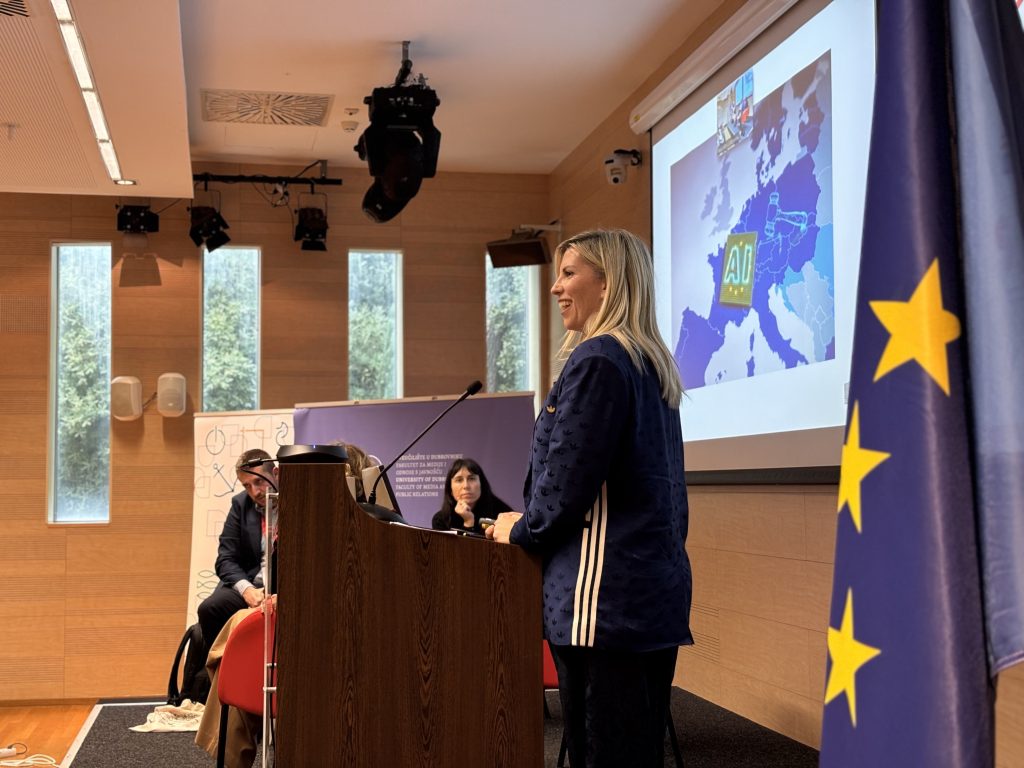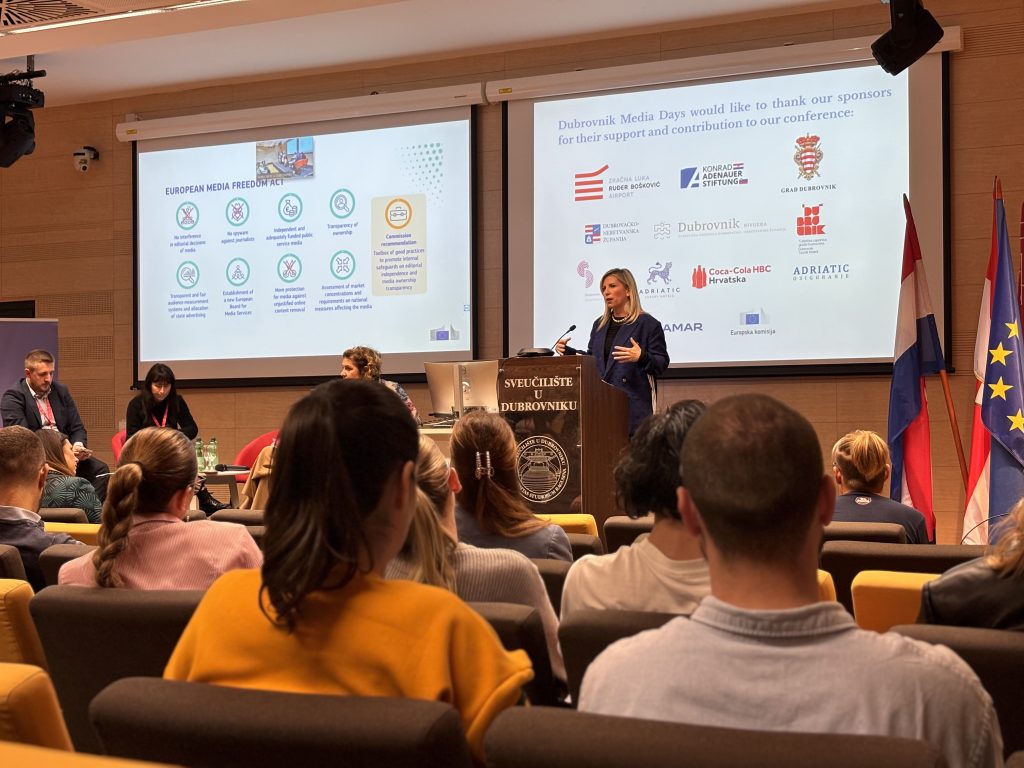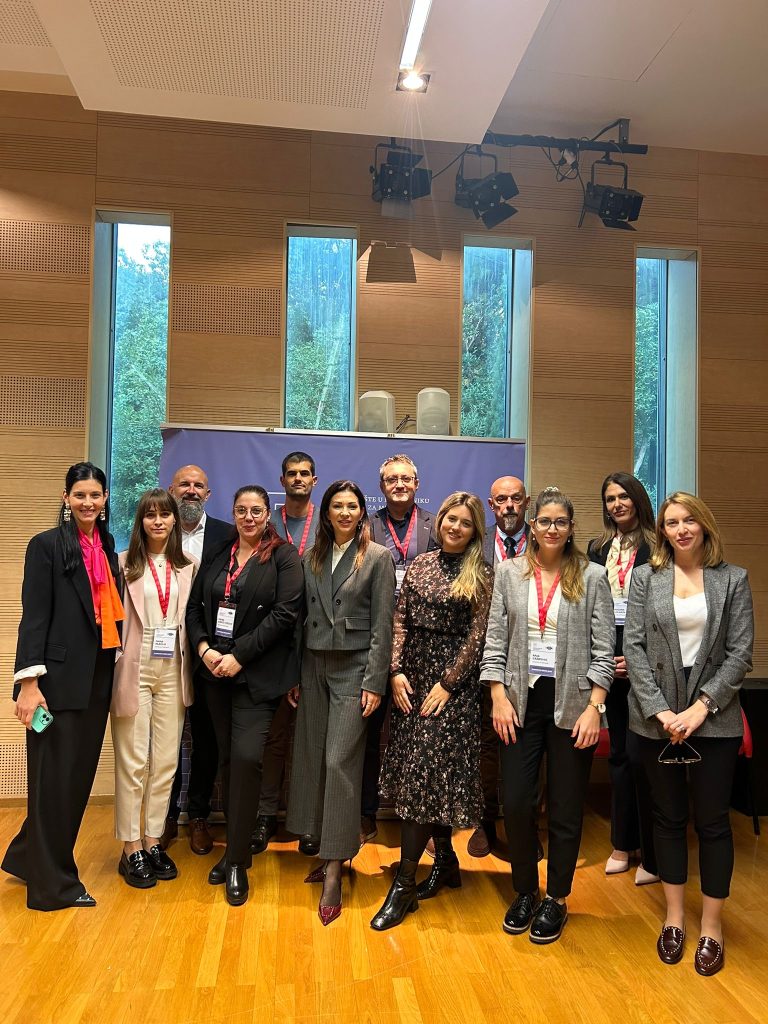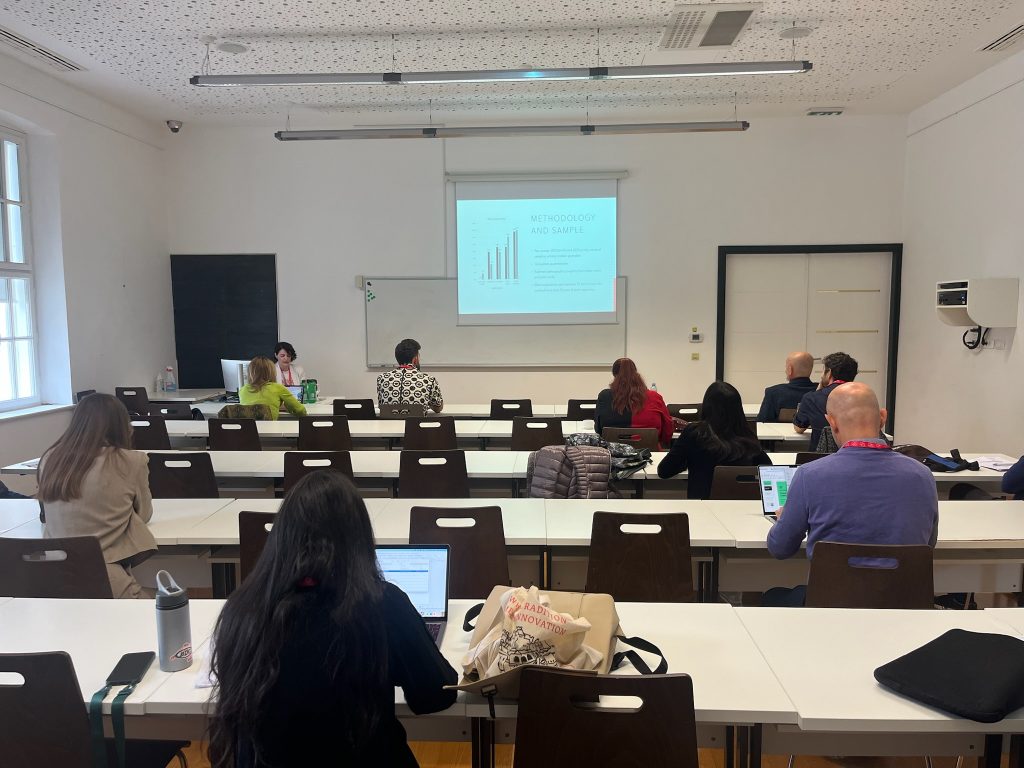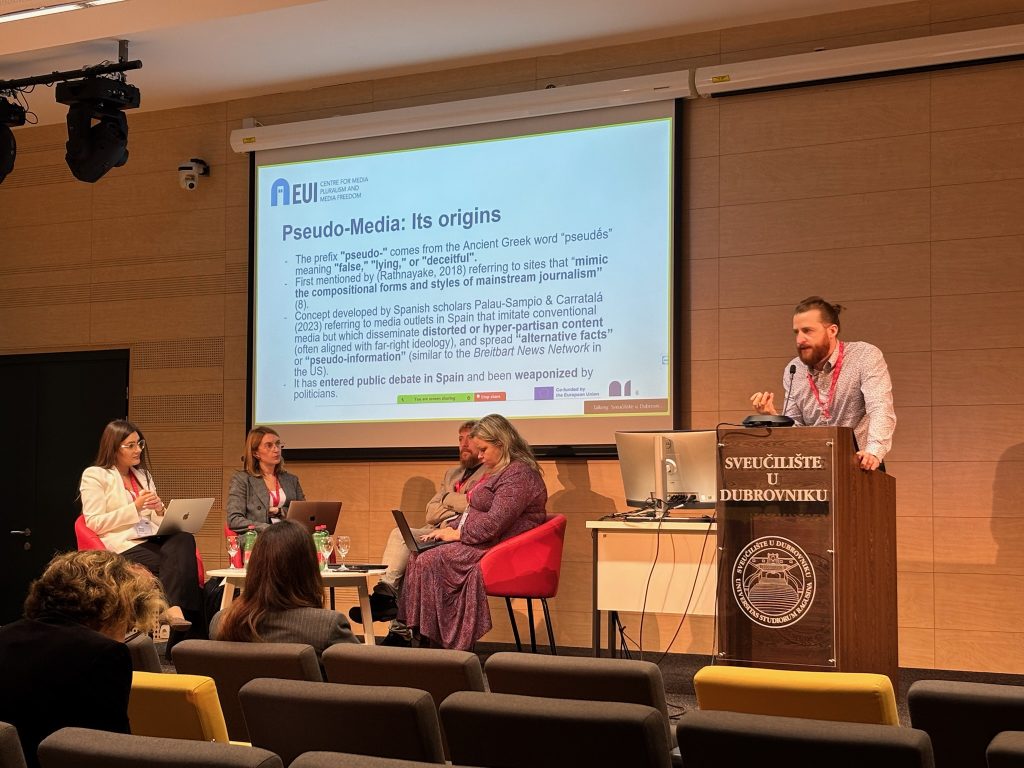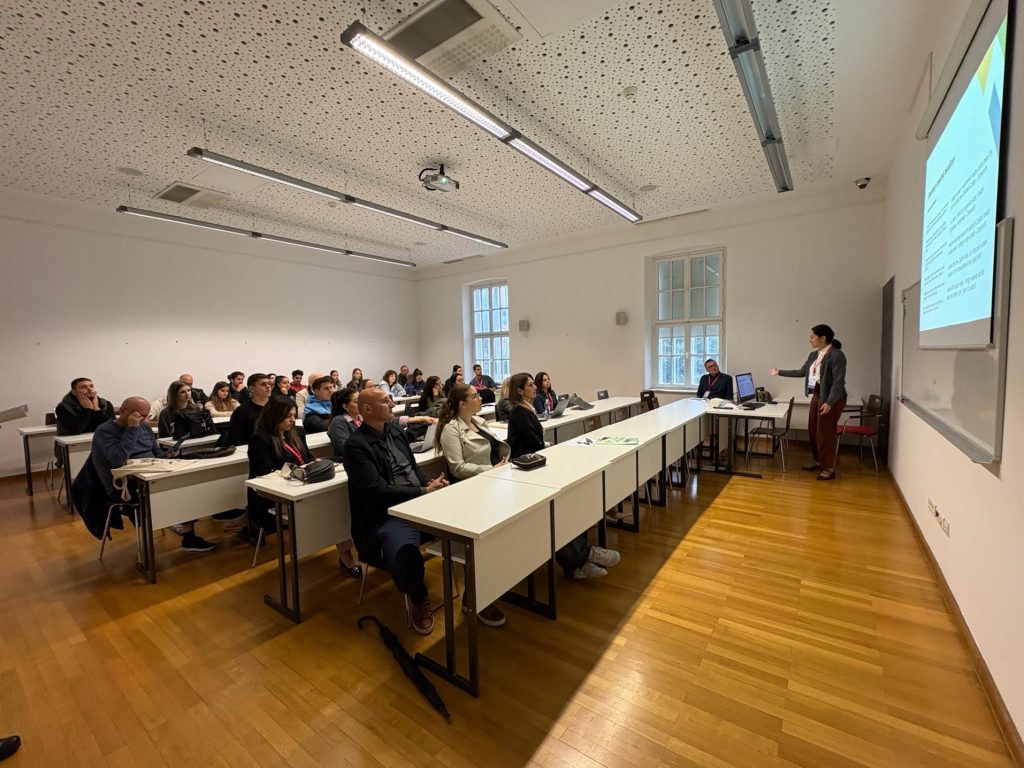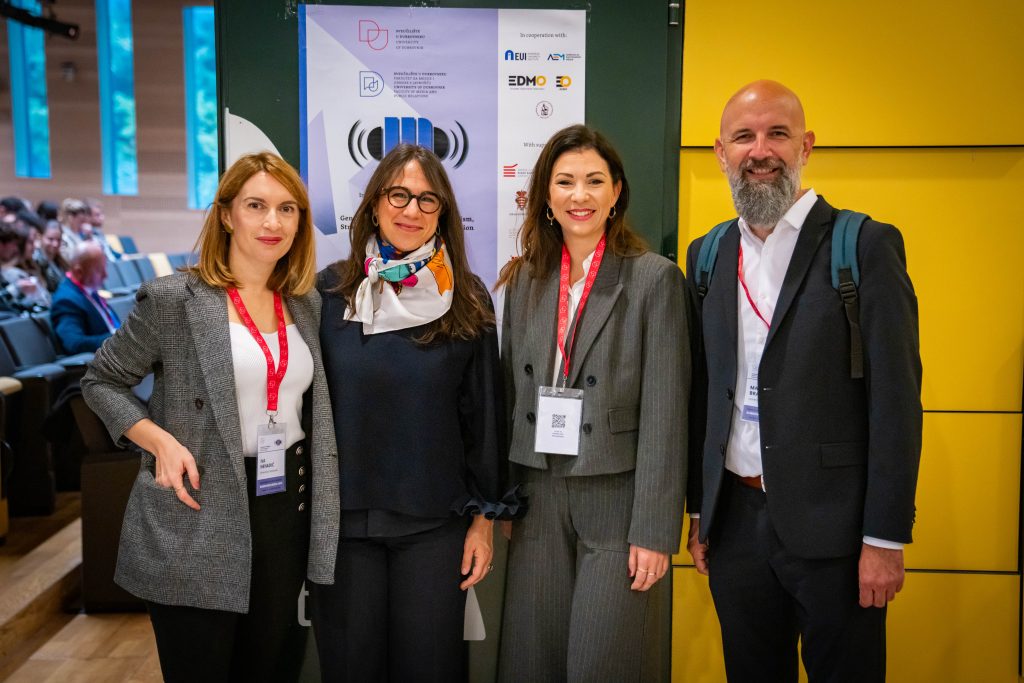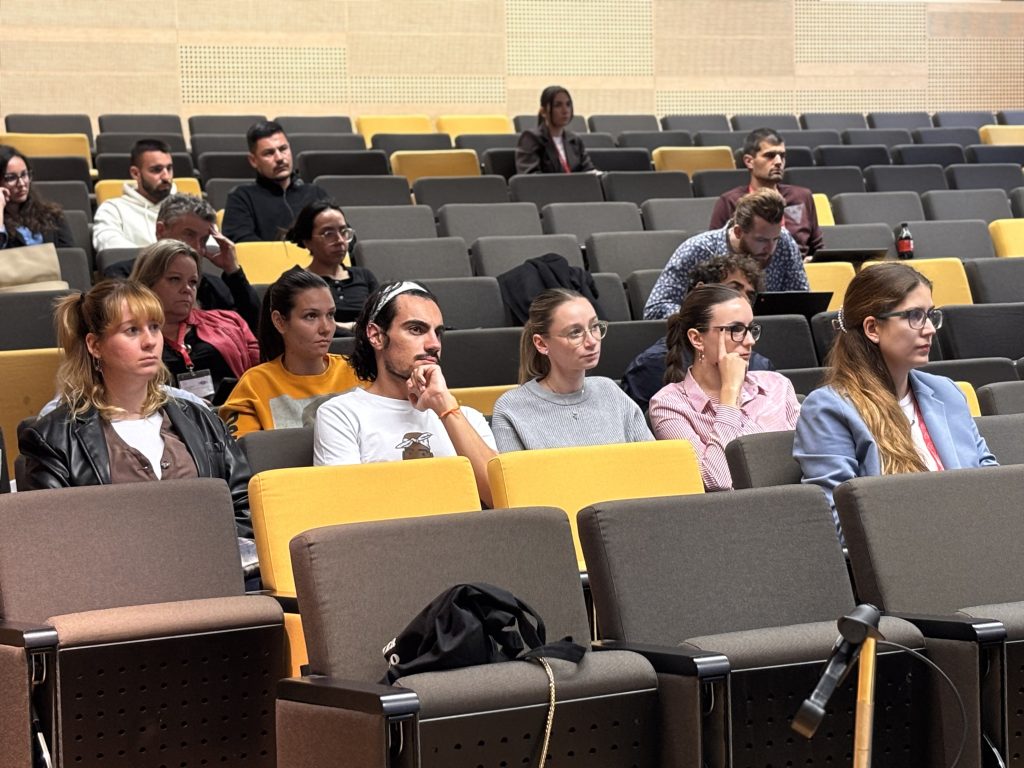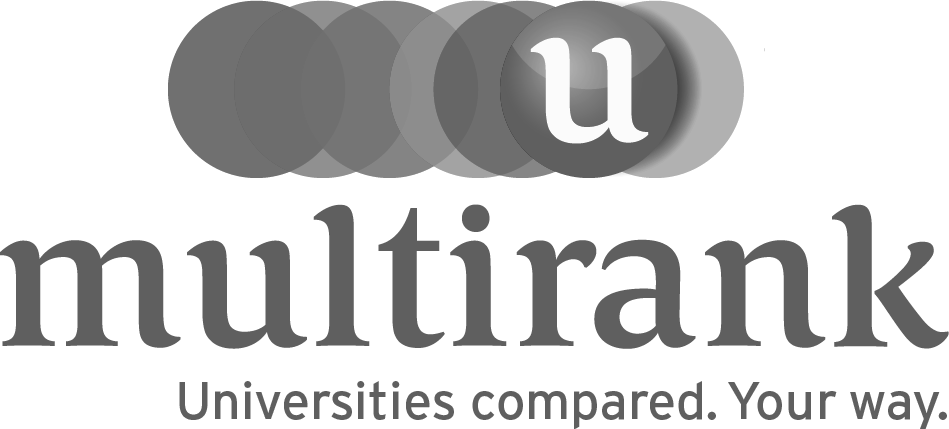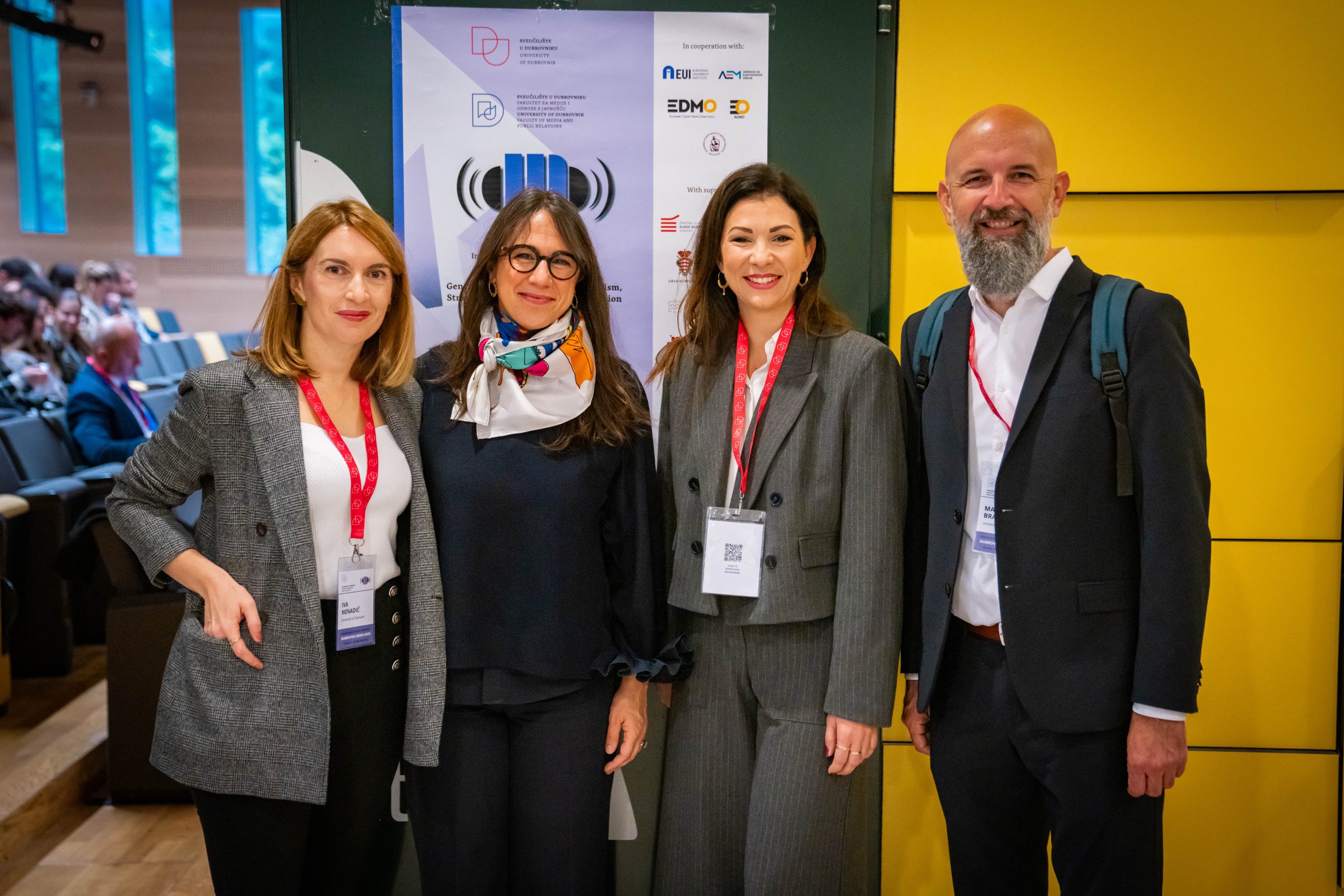
The University of Dubrovnik was the center of scientific and professional discussions on the impact of Artificial Intelligence (AI) on journalism, public relations, and strategic communication from October 23 to 25, 2025.
The 17th International Scientific Conference Dubrovnik Media Days (DMD) brought together researchers and experts from more than 20 countries across Europe and the world, who presented their research results and projects during the two-day conference. The discussions continued during the Policy Lab Day held on October 25. Over the three days, participants explored how AI is transforming the information ecosystem, journalism as a profession, public communication, and EU regulatory policies, as well as the role of academia and professionals in these processes.
After the organizers’ opening remarks, the conference began with parallel sessions on the impact of AI on disinformation and on the cognitive, social, and communicational transformations in the AI era. Scholars from Italy, Bulgaria, Poland, Bosnia and Herzegovina, Serbia, Spain, and Croatia opened diverse topics such as the rise of pseudo-media, the influence of AI on historical narratives, and the labeling and accuracy of AI-generated content. Special attention was given to the role of audiences in the dissemination of disinformation and the problem of algorithmic bias.
The first keynote lecture, “Generative AI Lifecycle”, was delivered by Murielle Popa-Fabre (AI & Society Institute, École Normale Supérieure), who warned that the shift from an attention economy to an intention economy creates a uniform audience, undermining media pluralism and cognitive autonomy, and blurring the line between truth and influence.
The first day concluded with sessions dedicated to media literacy, fact-checking, and international perspectives on the impact of AI on journalism. In addition to the previously mentioned countries, presenters also included researchers from Romania, Slovakia, Ireland, and Germany.
The second day of the conference was marked by two keynote lectures: Silvio Waisbord from George Washington University and Nicolas Petit from the European University Institute (EUI).
Professor Waisbord emphasized that AI deepens existing inequalities in the media industry, as major newsrooms with technological resources gain an advantage. While AI can enhance efficiency, it cannot replace human creativity, critical thinking, and contextual understanding. Professor Petit, on the other hand, highlighted that technological progress in the media brings social costs such as disinformation and loss of privacy. The key question of his talk—and of the entire conference—was: Who bears the cost (and what kind of cost) of innovation in today’s democracy?
Other sessions on the second day explored the relationship between journalism and technology, the role of markets and algorithms in news production, and the ethical challenges posed by AI.
The conference concluded with a panel on AI governance and regulation, opened by Andrea Čović Vidović, Deputy Head of the European Commission Representation in Croatia and Head of the Media Team, who presented the new European regulatory framework aimed at protecting journalists and ensuring platform transparency. The discussion continued with experts from Italy and Albania.
The Policy Lab Day was dedicated to debates on European digital and media policy, bringing together regulators, scholars, journalists, and professionals in panel discussions and interactive workshops. The new European Media Freedom Act (EMFA) was presented, highlighting the growing need for new standards of transparency and pluralism protection.
Two parallel workshops were held: one on EMFA and another on the ethical use of AI in journalism. These interactive sessions engaged students and local journalists and were organized in cooperation with Stralsund University of Applied Sciences and the EUniCoast Alliance. The day concluded with a panel on disinformation and fact-checking, featuring representatives from the European Digital Media Observatory (EDMO) network, regional EDMO hubs, and media regulators. Finally, a study on citizens’ media habits and perceptions of the importance of local media in Croatia was presented.
Dubrovnik Media Days 2025 reaffirmed that Artificial Intelligence brings new opportunities as well as profound ethical and societal challenges. Participants emphasized that the future of journalism and media depends on transparency, regulatory consistency, and human responsibility, while European policies such as EMFA provide a framework for safeguarding information integrity and democratic pluralism.
The conference was organized by the Faculty of Media and Communication Studies, University of Dubrovnik, in cooperation with the European University Institute (EUI) and the Centre for Media Pluralism and Media Freedom (CMPF), the Agency for Electronic Media, and the Croatian Academy of Sciences and Arts (HAZU).
The Policy Lab was supported by the European and Adriatic Digital Media Observatories (EDMO and ADMO) and the European University Alliance EUniCoast.
Dubrovnik Media Days and Policy Lab were held with the support of sponsors including Dubrovnik Airport, Konrad Adenauer Stiftung, City of Dubrovnik, Dubrovnik-Neretva County, Dubrovnik-Neretva County Tourist Board, Dubrovnik Tourist Board, Student Center Dubrovnik, Adriatic Luxury Hotels, Coca-Cola HBC Croatia, Adriatic Insurance, Valamar, and the Dubrovnik Technical Culture Community.
